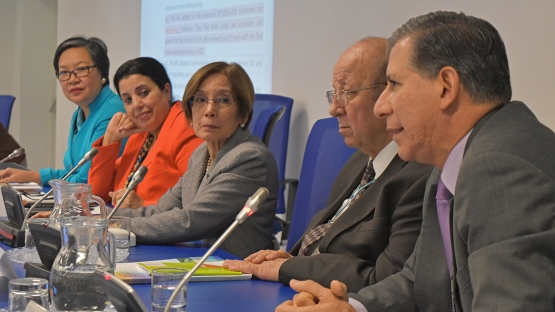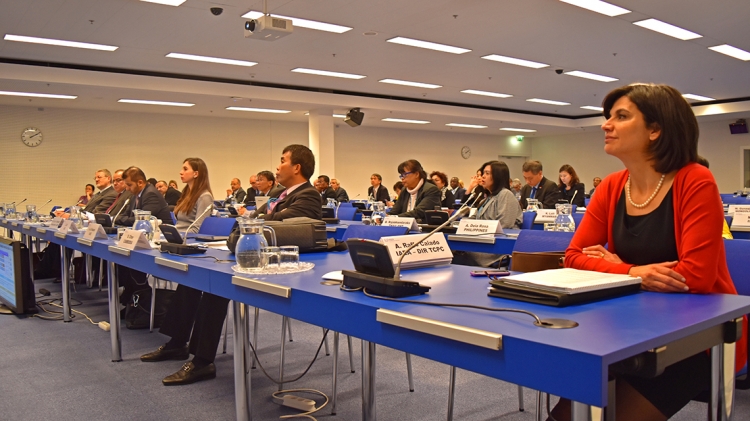National Liaison Officers (NLO) and National Representatives (NR) play a pivotal role in addressing strategic issues of relevance regarding the programming, planning, delivery and evaluation of the TC programme. Fifty-four NLOs and NRs from 36 Member States and territories in the Asia and the Pacific region met recently at the IAEA’s Vienna Headquarters, from 22—25 February 2016.
In opening the meeting, Mr. Dazhu Yang, Deputy Director General and Head of the Department of Technical Cooperation, underlined the importance of learning from past lessons, and refining the TC programme delivery to build sustainability to increase ownership and self-reliance.
He also impressed upon the participants the changed developmental context in light of the adoption of the 2030 Sustainable Development Agenda by Member States, in September 2015. This would guide TC programming based on developmental priorities, in alignment with their Sustainable Development Goals (SDGs).
In order to further strengthen common understanding of the key strategic aspects of the IAEA’s TC programme, the meeting broke into three working groups, providing a forum for open discussion and the exchange of experiences on strategic issues, namely: the Regional Programme Framework (RPF), for projects which are outside the regional agreements of RCA and ARASIA; a Strategic Capacity Building Approach (SCBA) for Human Resource Development; and an enhancement of Radiation Safety Infrastructure.
Eight Member States delivered presentations, sharing their national experiences and highlighting challenges and opportunities they faced throughout the project cycle, as well as best practices for strengthening the TC programme, particularly in the areas of: Experiences in National Integrated Planning (Malaysia and UAE), Best Practices in the Formulation of the CPF (Indonesia and Pakistan), Income Generation and Achieving Sustainability and Self-Reliance in the Application of Nuclear Technology (Lebanon and the Republic of Korea), and Partnership and Resource Mobilization (Jordan and the Philippines).
The participants’ endorsement of a comprehensive Regional Programme Framework (RPF) for 2018-2028 provided the main outcome of the meeting, establishing a roadmap for guidance to the TC programme in the Asia and the Pacific region for the next ten years. The RPF will provide the main reference for TC Asia and the Pacific programming of projects launched outside of regional cooperative agreements, while building upon existent regional resources developed over 60 years of technical cooperation activities. The RPF is complimentary to the Medium Term Strategies of the regional cooperative agreements of ARASIA and RCA.
In parallel, Action Plans were defined for a Strategic Capacity Building Approach (SCBA) for Human Resource Development, with the aim to increase south-south cooperation, coherence and self-reliance. A concrete Action Plan to improve the status of Radiation Safety Infrastructure in Member States of the TC Asia and the Pacific Region was also finalised during the meeting.



